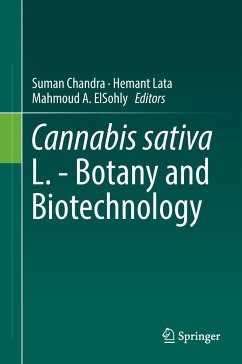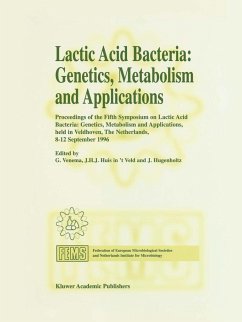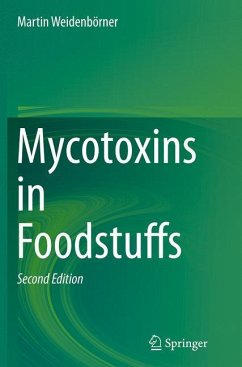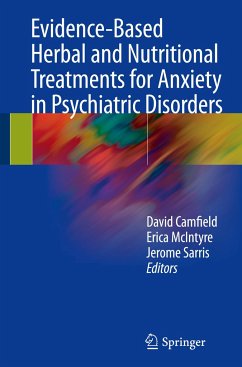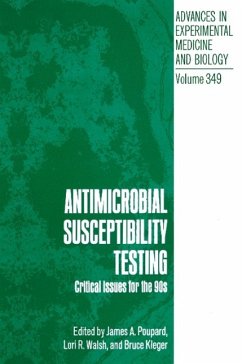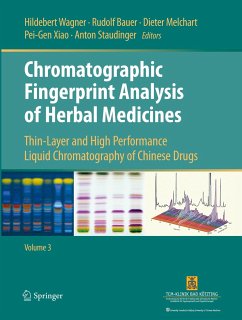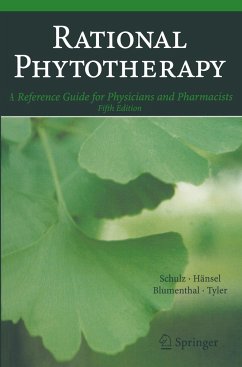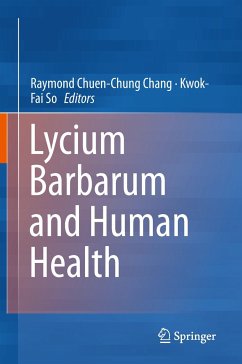
Lycium Barbarum and Human Health

PAYBACK Punkte
57 °P sammeln!
This book seeks to unravel the mysteries of wolfberry, and systematically introduces its mechanisms in preventing aging-associated diseases, such as cardiovascular diseases, inflammation, liver and neurodegenerative diseases. Wolfberry, the dried fruit of Lycium barbarum, is an anti-aging herbal medicine. There have been numerous reports investigating the underlying mechanisms of its anti-aging effects and its role in preventing pathological changes in many aging-associated diseases. Its holistic effects on the body can attenuate liver toxicity and combat the spread of cancer; it also prevents...
This book seeks to unravel the mysteries of wolfberry, and systematically introduces its mechanisms in preventing aging-associated diseases, such as cardiovascular diseases, inflammation, liver and neurodegenerative diseases. Wolfberry, the dried fruit of Lycium barbarum, is an anti-aging herbal medicine. There have been numerous reports investigating the underlying mechanisms of its anti-aging effects and its role in preventing pathological changes in many aging-associated diseases. Its holistic effects on the body can attenuate liver toxicity and combat the spread of cancer; it also prevents degeneration in the central nervous system, and can even positively affect the skin. As such, wolfberry has become a very popular food supplement around the world. This book will serve as an excellent reference source for researchers and graduate students studying herbal medicine and aging-associated diseases, while also providing insights for the pharmaceutical industry with regard to developing potential drugs for these diseases.





